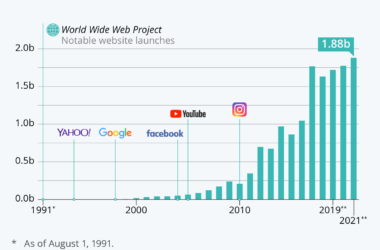Picture the scene: your business has a core group of advocates who think your products are the best thing they’ve ever seen. Your business solves their problems every single time, and you’re their go-to for their specific needs.
This is the ultimate ecommerce business goal.
What we’re referring to is referral marketing (no apologies for the pun; it was too good to miss).
Referral marketing is one step further from simple recommendations and can be a super effective tool in your marketing toolkit. This type of marketing has the power to drive conversions and enhance your brand’s reputation. Let’s recap on referral marketing before diving into seven strategies to boost your store’s online revenue.
What Is Referral Marketing?
Referral marketing refers to the practice of existing customers recommending your brand to others. Whether it’s someone recommending the latest hair dryer that’s changed their life or a new hutch for their pet turtle, referrals are nothing new.
Referrals often come about on impulse. However, there are referral programs you can create so your business can drive referral traffic. They usually come in the form of subtle incentives.
Driving more referral traffic to your website equals a better search engine position, thus enabling your brand to be more visible. When your business is more visible in the online space, the chances of more website people visiting your ecommerce store increase, and you boost your retail sales. Perfect.
So how do you achieve a successful referral marketing strategy for your ecommerce business? What’s going to have your loyal customers shouting from the rooftops about your fantastic products and services? Read on, reader.
- Gifts and Rewards
Starting with the most obvious, as everyone loves a gift, right?
Typical scenarios for this type of referral strategy are invitations for friends to visit your ecommerce store. If this referral is successful, you must reward your customer for sending the new customer along. Play around with different rewards, but some classics are discounts, free products, or extra points if you run a points scheme.
Experiment with tiered rewards models. For instance, after five friend referrals, your customer could be eligible for a larger prize than smaller referral numbers. Be sure to share your loyalty schemes with new customers to convert visitors into customers more often.
Why it works: customers love to be rewarded – in fact, we all do. Winning or achieving something gets our dopamine levels fired up. And when that feeling is enjoyed, they are more likely to become repeat referrers, which is only good news for your business.
- Show Me the Money
A more dramatic strategy than a rewards scheme, monetary incentives are a pretty compelling reason for customers to refer your business to others. Say you’re in the telecommunications industry, and you want customers to recommend your team chat features. You could offer money to both the existing and new customers upon signup.
The key to making this referral strategy work is to create simple referral links that are easy for customers to use. The simpler it is for customers to refer your business, the more likely it is that they’ll do it.
Why it works: money is always a great motivator. And if you set up a referral scheme that benefits both parties, it’s a win-win situation.
- Upgrades
For some businesses, monetary incentives aren’t an option. If this is your case, consider offering service upgrades to promote your business. Depending on what you have to offer your customers, some ideas include exclusive access to unseen products, extended warranties, or VIP support services. Before embarking on an upgrade referral strategy, firstly find out what’s valuable to your customers by conducting market research.
Dropbox offers a wonderful referral scheme, whereby referring customers receive additional storage space. This is a valuable addition to their customers, as usually, extra storage comes at an additional cost.
The simplest way to achieve an upgrade referral strategy is to create a tailored landing page for your promotion. Make it easy for customers to simply pop their friend’s email address onto the page.
Why it works: this referral strategy delivers value to customers. Money isn’t always the answer. If you can identify something within your business model that offers value and doesn’t cost you much to deliver, this strategy could encourage more customers.
- Competitions
If your customers are the competitive type, why not jump on that and organize a competition for the most referrals?
Giveaway options can include exciting gifts and rewards for the most referrals from a customer. The benefit of this strategy is that it’s super shareable on social media and generates interest and engagement.
Why it works: sharing events on social media is the norm now. This strategy creates awareness during the competition and also after the event. Make a big fuss of the winner on social media to generate a buzz around it, and explain how customers can get involved next time around.
- Advocates
This marketing strategy involves identifying who your strongest brand advocates are. These are the group of customers who are most likely to refer your business to others. To do this, enlist the help of the NPS (Net Promoter Score). This method ascertains and categorizes customers into segments of promoters, passives, and detractors.
Your most loyal advocates fall in the promoters camp, and this is the section you need to work on. Just create a simple poll, and include it in a marketing survey email to ask, “How likely are you to recommend our product to a friend or colleague?”. This works to segment your customers.
For reference:
- Promoters (score 9-10) – loyal brand advocates who repeat buy from your business and naturally recommend your products to others.
- Passives (score 7-8) – happy but apathetic customers. They don’t have much motivation to recommend your products. However, don’t rule this group out, as they could be incentivized by compelling referral schemes.
- Detractors (score 0-6) – customers that are unsatisfied and won’t recommend your business. Approach for a review or recommendation at your peril!
Why this works: by targeting your most dedicated followers, you can quickly set a pace for referral traffic. This group of customers won’t need much persuasion to refer your business and are the best place to start for a referral strategy. Running an NPS is a great tool to use for other purposes, too.
Knowing how loyal your customers are delivers valuable insights into how your brand is perceived by your audience and what you can do to foster stronger customer connections.
- Affiliates
An affiliate marketing strategy is one to perhaps consider once your referral marketing strategies are well established. After all, offering upgrades and some gifts won’t cost you too much in the grand scheme of things.
Affiliates receive a commission from successful referrals, and they’re not necessarily actual customers of yours. You’ll need affiliate tracking software to monitor and analyze your strategy as you go to check your ROI. Affiliate marketing is a useful tool for generating product reviews for your ecommerce store, which boosts your brand’s credibility and trust factor.
Why it works: we already know that recommendations from people we know are powerful. But that power increases tenfold if you can partner with an influencer to promote your products in an authentic way. Ker-ching.
- Charity
Create places on your website to demonstrate where your customers can donate to charity by shopping on your ecommerce site. There are plenty of charities to choose from, and your business is probably already associated with one or two. Simple buttons and order confirmations advertise their charity donations, which customers can share with their friends and on social media.
Why it works: by promoting charity and social causes in your digital marketing, customers will become more loyal. Then a few things will happen – they will shop more with your store, tell their friends, and your business gets a reputation boost.
Key Takeaways
Whichever referral strategies you decide are right for your business, the key things to bear in mind are:
- For referrals to work, your business’s customer service and products must be top-notch
- Gain an inherent understanding of your existing customers to ascertain what they value the most
- Take advantage of your customers’ natural predisposition to recommend products
Ready for Referrals?
Ecommerce businesses that add well-thought-out referral marketing strategies into the mix often experience success. Capitalize on your customers’ natural desire to talk about your products, especially when they’ve received excellent service. All your customers need is a little nudge in the right direction to promote your business for you.
The three main avenues for promoting your referral strategies are through email, your website, and social media platforms. Set up email automation campaigns to deliver referral scheme emails at the right time post-sale. Give customers time to enjoy their new product before asking for referrals. But don’t leave it too long that they’ve forgotten about you!
The strategies we’ve mentioned all work well. It’s just a case of picking the best ones for your business model. So next time your marketing team gathers in the video conference room, you’ve got plenty to discuss. Once in motion, your referral strategies will encourage more customers to your ecommerce store, drive conversions, and increase awareness of your brand. Now that does sound good.










